By Stacey Gualandi/July 29, 2012
I was thrilled to have Marcia Clark back on The Women’s Eye Radio Show recently. She is, of course, one of the most recognized and sought after legal experts in the world, and now, a very successful crime novelist.
“I don’t need to go to trial if I get to write about it. It’s much better because I can control the outcome.” Marcia Clark
I wanted to talk to Marcia about the latest legal headlines and the sequel to her first book, Guilt By Association. It’s called Guilt By Degrees, and the only thing I think Marcia is guilty of is being a fast writer. Here is an excerpt from our interview…
STACEY: It must be a problem for you that when you have a really good first book, everyone wants the second one immediately.
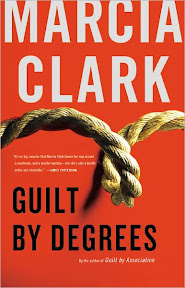 MARCIA: I actually have told people that I just finished the third book, and they want to know where the fourth one is.
MARCIA: I actually have told people that I just finished the third book, and they want to know where the fourth one is.
STACEY: Was this set up as a trilogy or could there even be a fourth, fifth, tenth, eleventh, and going on and on?
MARCIA: No, it’s not a trilogy. It’s meant to be an ongoing series that hopefully goes to 20, 30, and 40.
STACEY: Fantastic! So you are committed to this. This is your new life, right?
MARCIA: Yes, and I really love it. I love these characters. I love this world. Every new book gives me a chance to explore not only new cases but these characters in more depth and see what they get up to and the way they develop. It’s like peeling the skin of an onion.
STACEY: Could you have done this had you not been the attorney that you’ve been for all these years?
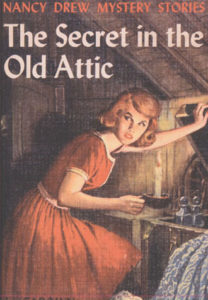 MARCIA: I don’t think so. I’ve thought about that question. I wanted to be a writer since I was a kid. I love fiction. I love mysteries and thrillers. I loved Nancy Drew from the time I was five-years-old. It’s an ongoing thing for me, so it’s not a new love at all. It almost feels like I’m coming full circle.
MARCIA: I don’t think so. I’ve thought about that question. I wanted to be a writer since I was a kid. I love fiction. I love mysteries and thrillers. I loved Nancy Drew from the time I was five-years-old. It’s an ongoing thing for me, so it’s not a new love at all. It almost feels like I’m coming full circle.
But, I have to say, I don’t know that I could have done it had I not had the experience that I got working in the District Attorney’s office and living that life. It’s added a great deal to my personal experience of the world, as well as my professional life.
There’s no duplicating the experience you get as a criminal lawyer, whether it’s prosecution or defense. You meet characters you could never imagine, and you have experiences and you see things you’d never ordinarily see.
It gives you a view into an entire world that most people don’t know, and I think it certainly has a big impact on the writing.
STACEY: Would you say your main character, Rachel Knight, is an extension of you? Is she Marcia Clark but on the printed page?
MARCIA: I didn’t do that consciously, but I think it’s inevitable. There’s no way to avoid having yourself injected into every character, especially the lead.
I didn’t set out to do a mini-me. I set out to create a character through which I could convey the world that I knew, the world of special trials prosecutor, which is really unique, because most prosecutors don’t pick up cases until they’re ready to go to court.
In special trials, though, the prosecutors handle the most high profile cases in the county and so we picked up the cases the day the body was found, and we’d be out in the field working up the investigation with the police. We learned a great deal about how a case is investigated and how to manage the analysis of evidence and witness interviews, that sort of thing, that most prosecutors don’t do.
I set up this lead character to be the funnel through which I could show you the world and what life is like for a woman in the special trials unit in Los Angeles. So, I didn’t mean for her to be me, but, inevitably, I think I’m in all the characters in one way or another, the good guys and the bad guys, and I suppose that must mean that I’m in Rachel, too.
“All of us go through life and gather scars, and we wind up with an emotional limp of one kind or another…”
STACEY: If they liked Rachel in the first book I think they’re really going to like her even more in Guilt By Degrees because there’s still all the intrigue and the suspense, but it’s entertaining, too. How did you want this sequel to be different from the initial book?
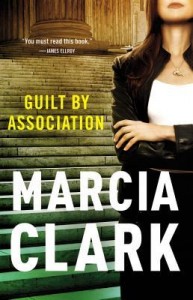 MARCIA: In the sequel, I wanted to get a little deeper into the characters. I hint in Guilt By Association, the first book, about a big trauma that Rachel suffered when she was a child involving her sister Romy. In Guilt By Degrees, I really explore that trauma and then I show how it plays out in her personal life.
MARCIA: In the sequel, I wanted to get a little deeper into the characters. I hint in Guilt By Association, the first book, about a big trauma that Rachel suffered when she was a child involving her sister Romy. In Guilt By Degrees, I really explore that trauma and then I show how it plays out in her personal life.
All of us go through life and gather scars, and we wind up with an emotional limp of one kind or another as a result of the experiences we have. But those limps may not show up in our professional life.
You may be able to walk into work, be tough as nails, no problems, deliver every day, but it will show up somewhere and usually it’s in the personal life. That is certainly the case for Rachel, and in Guilt By Degrees I took the opportunity to show how the emotional limp plays out in her personal life, and how it hampers her.
STACEY: We’re getting your readers intrigued here. Now, tell me about who you dedicated this book to.
MARCIA: These stories are inspired by real cases as well as by my real experiences in the office and then, of course, by my sick and twisted imagination.
So this one was inspired by a true case in New York in which a homeless man saw a woman being attacked on the street, and he went to her aid, and in the process he freed her. She escaped, but he got stabbed.
He dropped to the ground, and people walked past him for hours while he bled out on the sidewalk. They walked over him, took pictures of him, walked around him, but not one called the police or came to his aid.
“It was as if he was homeless and invisible. No one thought to take care of him or to help him.”
STACEY: It was hours later that he died?
MARCIA: Yes, and he died on the sidewalk. Eventually, though, people did stand up for him and did recognize that he was a hero and so the story was published. I was so upset by reading that. It was as though he was homeless and therefore invisible.
No one thought to take care of him or to help him. So, I dedicated the book to him and our story opens with a brutal ax murder that happens two years earlier, and then flashes forward to current time where a homeless man is stabbed on the street and left to die in very much the same way.
Rachel accidentally winds up with the case involving the homeless man, who doesn’t even have a name yet. This is a regular case. This is not a high profile case that goes to special trials.
But when she’s in court and she sees the DA handling the case basically drop it on the floor, she grabs the case from him. When it gets dismissed, she refiles it and takes the case on, even though she’s not supposed to do that and gets in trouble for it. She then finds out in the course of her investigation that this case is related to an ax murder two years earlier.
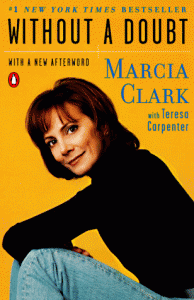 STACEY: So everything is intertwined. While you’re loving writing novels, are you ever going to go completely away from the legal world? It seems to fuel your ideas for future books, right?
STACEY: So everything is intertwined. While you’re loving writing novels, are you ever going to go completely away from the legal world? It seems to fuel your ideas for future books, right?
MARCIA: I think of it more in terms of keeping my hand in, legally speaking. It’s not so much stories as it is staying on top of the way cases still are being tried today. The differences aren’t many.
It’s funny. It’s been 17 years since the O.J. Simpson verdict, but as a result of that case, juries began to demand a lot of bells and whistles, PowerPoint and all kinds of cool things. And, of course, CSI made that worse.
So, they expect you to be able to find the eyelash in the field that is tied to only one person in the universe.
STACEY: So, you’re keeping your hand in it so you can see how cases unfold. Are there any cases right now that you wish that you could have been a part of or had your hand in?
MARCIA: No. I have to tell you the truth. There was a period of time after the Simpson trial when I missed the DA’s office. I really wanted to go back into trials, and it was really painful not to be there. But those days are gone, and I almost think that writing about Rachel Knight satisfies that part of me. I don’t need to go to trial if I get to write about it. It’s much better because I can control the outcome.
“I’ve been commenting on all the big cases, but I don’t feel any need to go in and fight the battle myself.”
STACEY: You can go into a courtroom in your books and say, “Okay, this is what I want.”
MARCIA: Yes, I don’t get to do that in a real case. I don’t get to pick my evidence. But I do when I write it, so I think in many respects I am very satisfied writing about it. I like to observe and comment.
STACEY: I want to talk about those trials, but do you feel that people are reacting to you differently now that you do have a successful book and in this new role?
MARCIA: Yes. It’s really interesting you should ask that. Initially, when I went out with the first book, Guilt by Association, people still wanted to talk about the trial. They wanted to talk about the evidence. They wanted to hear about how I felt about the verdict and all that stuff, and they were still very interested in hearing about Simpson.
But, with the second book, I really found that people had made the turn, and they were willing to talk about the characters and where I see them going and what’s going to happen next. They really made a shift.
STACEY: You have such a great way of explaining the larger-than-life cases to everybody. In a case like the one involving Trayvon Martin, do you see this coming to trial anytime soon or is this something that’s going to keep getting pushed back to try to lessen the impact when the actual trial occurs?
MARCIA: I think the defense is definitely going to try to push it off. I have no doubt in my mind about that. Whether it will be successful is a whole different story, because I’m sure that the prosecution is not going to want them to do that. It will go to trial, but exactly when is anybody’s guess.
STACEY: Why do you think that case had such an impact or created such a national uproar?
MARCIA: It tapped into a much larger social issue. The cases that do that really are the ones that tend to get the most national attention and investment by the public. This one taps into issues of racism and equality and vigilantism and what people do to protect themselves from crime and criminals.
STACEY: What do you think about the John Edwards trial. Were you surprised at all about his acquittal?
MARCIA: I went the whole arc with him because at first I thought, well, they really do seem to have a pretty compelling case. It looked to me like they had all these phone calls; Andrew Young had a lot to say; his wife is going to back him up; and you’ve got the checks from Bunnie Mellon, blah, blah, blah. I thought there’s no question and nobody denied that he was using the money to hide Rielle Hunter and their baby and her pregnancy.
But, when the trial actually got underway, I saw the credibility attacks that Andrew Young was going through and that he had to admit that he, himself, used some of that money to build his own house.
So now this is your star witness who has admitted that he used some of the money for his own benefit. You hang a case on someone like that and you need more.
STACEY: So, when you’re not watching these trials or cases unfold and speaking about it on TV, is every waking moment devoted to writing?
MARCIA: Just about…writing, and I’m still handling criminal cases at the appellate level for the Court of Appeals, so that keeps me busy. One way or another, I’m always writing, and now I’m going to be contributing to forbes.com.
“The next book all involves Hollywood so, of course, there’s murder and mayhem.”
STACEY: That’s fantastic. Can you give us a quick peek into your next book, maybe a little snippet? When does that come out?
MARCIA: Guilt By Ambition is book three in the Rachel Knight series, and I call that the Hollywood book, because it involves a world famous director, think James Cameron, and his manager-partner and their production company and then his daughter and a mysterious young man who appears and who turns out to be the son of someone who works with her father.
That book comes out some time next year. We’re thinking probably June, and in that book Rachel goes to trial.
STACEY: Well, it was great talking to you. I wish you continued success with all your “Guilt By” books, and let’s talk again when your next book comes out.
###
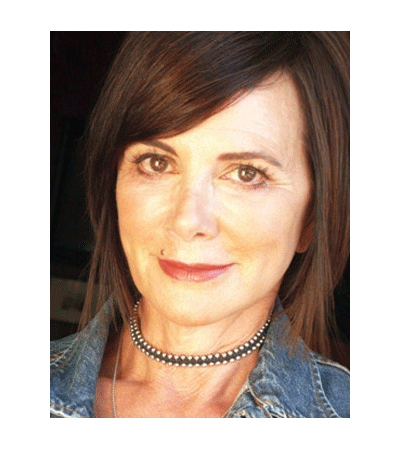



Leave a Reply